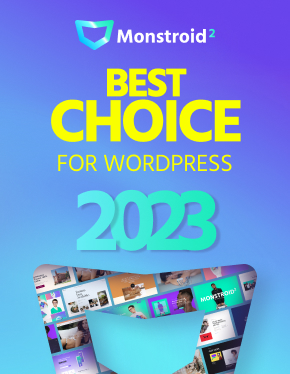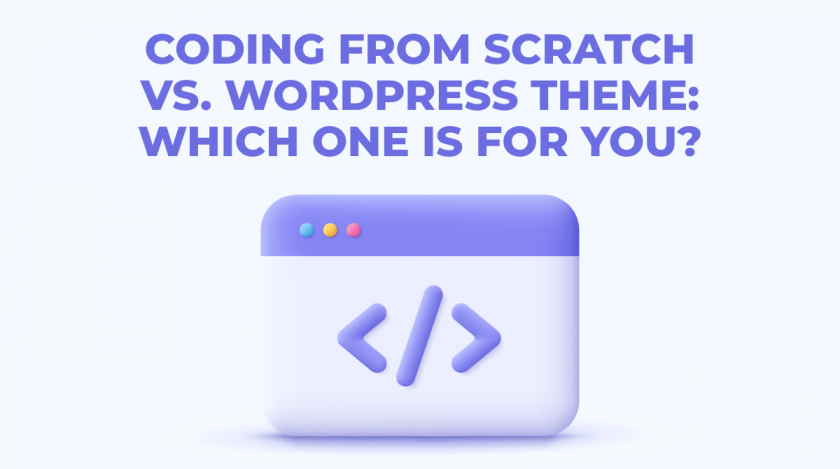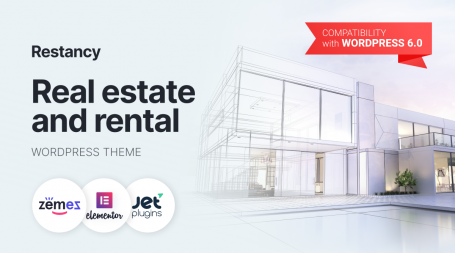You may be wondering what works best for you: writing the code yourself or using a WordPress theme when building your website.
If you know basic HTML, JavaScript, and CSS, you may find it easier to create your own WordPress theme. But if you’re new to coding, using a content management system may be the better option.
The costs, time, and overall quality of your finished product can vary depending on what you go for.
When you don’t know which way to go, getting a professional opinion is the best of ideas. Look for the best UX agencies in your region. They can build the best plan both if you decide to build it from scratch or use an existing content management system.
To help you make up your mind, we’ll first explain the difference between WordPress and HTML websites.
Differences between WordPress and HTML websites
WordPress is a widely popular content management system (CMS) used by more than 40% of websites. You can use it to build a solid online presence effortlessly.
Because it’s a simple and obvious choice, most developers recommend WordPress as a base for your website.
And you have other dynamic website-building options, too. After all, there are hundreds of website builders, publishing platforms, and CMSs on the market.
The best CMSs make basic tasks like adding multimedia to your posts straightforward and intuitive.
Static HTML websites consist of a series of HTML files that represent every page. Dynamic webpages use stored data along with scripting languages to construct web pages.
WordPress websites are all based on HTML, but not all HTML websites are based on WordPress.
WordPress websites are great for novices and non-developers, whereas HTML websites can be better for experienced web developers.
Particularities of website coding
Static HTML websites are easier to maintain when you already have well-written code. And you have easy access to the underlying code. So, it’s easier to input some types of markup. You don’t have to deal with themes, template loops, or files. Everything is laid out in front of you.
Easy to use and host
Static websites are easier to use for basic websites, where you don’t need frequent changes and updates. They’re cost-effective, so if you have a shoestring budget, you can work out a dedicated server solution for a lower price.
Limited functionality
Unfortunately, HTML static websites aren’t as rich in functionality as dynamic websites. You can add images, video, text, and hyperlinks, but it’s much more difficult to implement other precise functions.
Updating and changing your website code takes time and is complicated if you lack proper training. You need to employ a technical expert because every page has to be adjusted separately.
Pros and cons for using WordPress Theme
Let’s see why 455 million websites use WordPress. The most straightforward answer is that WordPress takes out code from your daily website management tasks.
Easy content management
You use a graphic interface as a substitute for code. This graphic interface lets you do the following:
- Change your website’s functions
- Change your website aspect
- Create and change content
- Set up SEO settings
- Complete maintenance and other actions.
Basically, it makes website management much more accessible and simpler, as opposed to HTML and CSS-based websites.
Easy-to-use WordPress themes
Because every WordPress site uses a theme, it’s easy to change how your website looks. The theme you choose influences your website’s aspect. Themes are easy to install. You just go to the theme bundles, choose one, and click the button to install it.
Immediately, your website adopts the theme’s styling preferences (colors, fonts, setups, etc.). It’s so time-consuming to control your website’s looks with a static HTML website.
Any change takes more time, and it means more than just picking a different color, for example. Some CSS frameworks can speed up the process, but you need some knowledge, and you put in much more work to see the differences.
Pre-built WordPress themes speed up your work and make updates easier for you, especially when you don’t have the know-how or full-time developers at your disposal. If you are looking to hire a developer then you may wish to look at this developer contract template to speed up and formalize the contract writing process.
As a bonus, most WordPress themes are already optimized for mobile screens, whereas with a static HTML website, you have to put in the work to make your CSS responsive.
Plugins and functionality
WordPress uses plugins to help you extend the way your website functions. You can add chats, contact forms, or forums, for example.
When you use code, you have to deal with tests and validation. It takes so much more time to build such complex features with code from scratch.
It’s much easier to install the right plugin on WordPress, especially when selling services or products. There are eCommerce plugins that can help you increase sales and conversion and make your website look good in the process, too.
Easy-to-make changes
Using themes and plugins with WordPress functionality turn change into a much easier process. Static HTML code may be enough for basic web pages but not for specific functionality. WordPress is a much better candidate for building and optimizing sites.
Some SEO plugins help you optimize WordPress SEO because they control all technical and on-page SEO aspects.
Of course, maintenance is something you have to consider, as opposed to static HTML websites. Keeping plugins, themes, and software up to date and compatible with one another is something you have to do regularly.
And, because WordPress is such a popular CMS, you’ll realize that finding good plugins and themes requires lots of work.
Sorting through thousands of options can be time-consuming. But once you find the right ones, it’s worth it.
Conclusions
Choosing to build a website by yourself or relying on WordPress is a choice that depends on the functionality you want and its purpose.
Some businesses may choose to go for the simplicity and easiness of static HTML websites, while others would prefer WordPress functionality.
In short, if you just need a simple website that doesn’t require many changes or frequent content updates, static HTML (coding from scratch) is a great option.
If you need something else from your website, then WordPress could very well be the more inspired choice, particularly if you don’t have coding experience or quick access to a developer.












